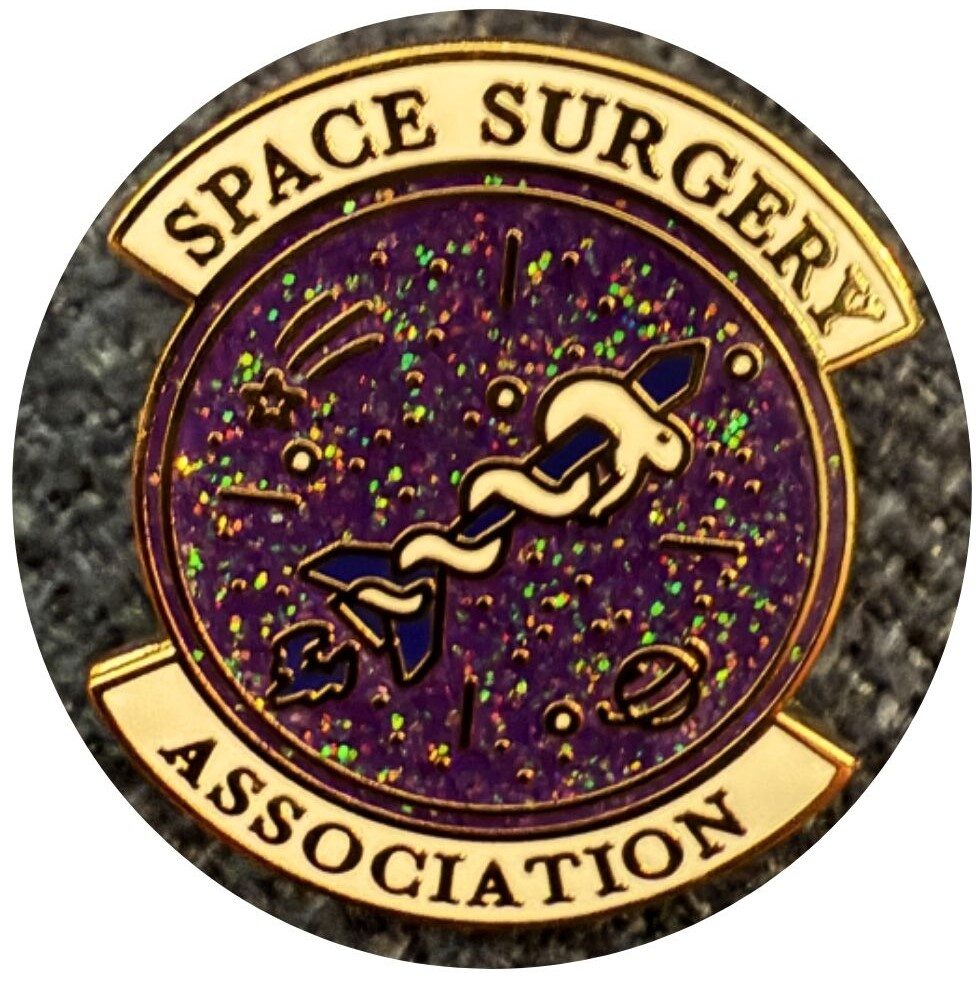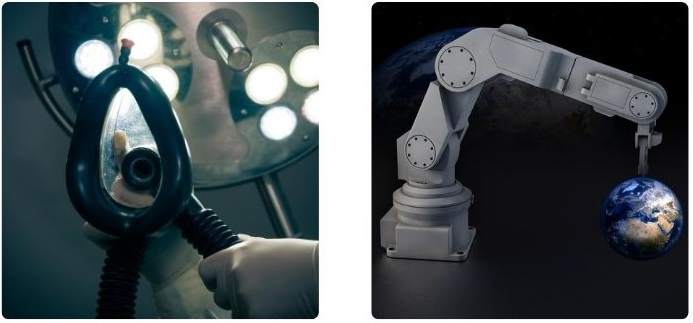Reflections from the 2025 Space Surgery Symposium
Exploring Surgical Readiness Beyond Earth
Members of the UTHealth Houston – Space Medicine program had the honor of participating in the 2025 Space Surgery Symposium, hosted at the NASA Starport Exchange (Gilruth Center) in Houston, TX. The event brought together thought leaders, innovators, and clinicians dedicated to solving one of the most complex challenges in spaceflight: how to safely perform surgery beyond Earth.
Why Surgery in Space Matters
Surgery is a fundamental part of modern life—globally, the average person undergoes a surgical procedure approximately once every 25 years. Many of these procedures, such as appendectomies or gallbladder removals, arise from acute conditions that demand timely intervention. As humanity sets its sights on long-duration missions to the Moon, Mars, and beyond, we must be prepared for the possibility that astronauts may require surgical care in the unforgiving environment of space.

The 2025 symposium provided an extraordinary opportunity to explore this frontier. It served as a continuation of work first set in motion by earlier symposia in 2015 and 2018, organized by the Space Surgery Association (SSA)—a multidisciplinary group of surgeons, scientists, engineers, and space medicine experts focused on building the surgical infrastructure necessary for exploration-class missions.
Symposium Highlights
The agenda was a dynamic mix of technical talks, case-based discussions, and forward-looking perspectives. Some standout sessions included:
- “Anesthesia in Spaceflight” by Art Formanek, exploring how microgravity impacts sedation, airway management, and patient monitoring.
- “Neurosurgical Considerations for Spaceflight” by Edson Oliveira, highlighting the unique challenges of brain and spinal injury management in microgravity.
- A compelling session on the “Role of Robotic Surgery and AI” by Dan Fer, envisioning autonomous or semi-autonomous systems for surgical intervention when Earth-based support is limited by communication delays.
- Women’s health in spaceflight was brought to the forefront by Begum Mathyk, focusing on surgical preparedness for conditions unique to or more prevalent in women astronauts.
Later in the day, the symposium featured innovative projects such as the Space Ambulance concept (Steve Robinson), the management of medical data in space (Jimmy Wu), and technology development strategies from Shane Farritor, who walked attendees through translating surgical technology from concept to application in the rigors of space.
In the afternoon session, there were especially engaging presentations led by Kimia Seyedmadani on qualifying surgical technologies for clinical use both on Earth and in space, and during the panel led by Rey Henry and colleagues from the military trauma community, drawing parallels between remote combat surgical care and the operational needs of space surgery.

The day wrapped with recommendations and action items, emphasizing the urgent need for roadmap development, simulation infrastructure, and multi-institutional collaboration to validate space surgical capabilities.
Our Role
Our team was proud to contribute to the discussions and to learn from colleagues across NASA, academia, the military, and private industry. With a deep bench of expertise in aerospace medicine, surgical innovation, and translational research, we’re well-positioned to continue driving forward the agenda of surgical readiness for spaceflight.

As one of the leading institutions involved in space health and performance research, UTHealth Houston remains committed to the collaborative, rigorous, and mission-driven work that events like this symposium inspire.
Looking Ahead
With the Artemis program and commercial spaceflight rapidly expanding the scope and duration of human missions beyond low-Earth orbit, the question is not if surgery will be needed in space, but when. The 2025 Space Surgery Symposium helped crystallize the challenges ahead—and more importantly, the solutions that will enable safe, effective surgical care far from home.

We are grateful to the Space Surgery Association, NASA, and all contributing partners for making this event possible. UTHealth Houston – Space Medicine is proud to continue partnering in this vital and inspiring work.